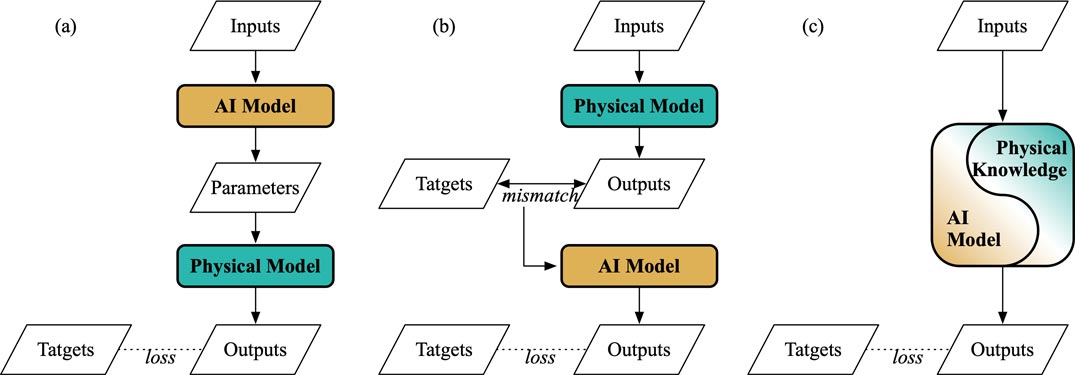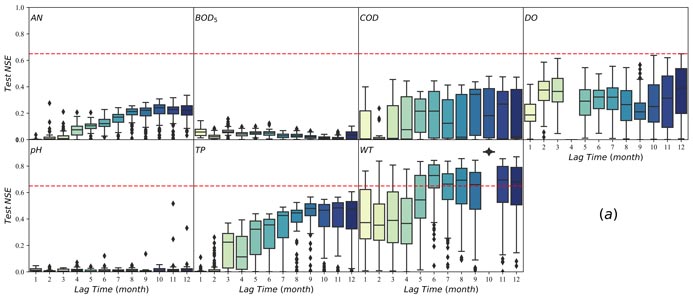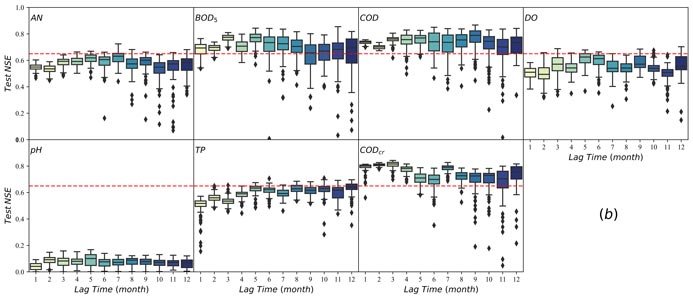
Qiang Li (李强)
I am a PhD student specializing in hydraulic engineering at Sun Yat-sen University, working under the mentorship of Prof. Tongtiegang Zhao (赵铜铁钢).
Before that, I did my master's degree in geography and bachelor's degree in geology advised by Prof. Yonggui Wang (王永桂) at China University of Geosciences, Wuhan.
POI : Physics-guided ML & Explainable AI & Hydrology
Email / Google Scholar / ORCID / CSDN / GitHub / ResearchGate
News
- 01/2025, I have finished the dissertation proposal defense.
- 09/2023, I started my first year of a PhD student at Sun Yat-sen University.
- 06/2023, I got the master's degree in geography at China University of Geosciences, Wuhan.
- 10/2022, I won the National Scholarship for Graduate Students.
- 08/2022, one patent for invention has been authorized by China National Intellectual Property Administration.
- 08/2022, one research paper has been accepted by ESPR, 2022.
- 08/2022, I gave a presentation at 6th Forum on River and Lake Ecology, 2022.
- 06/2022, one patent for invention has been authorized by China National Intellectual Property Administration.
- 11/2021, I won the National Scholarship for Graduate Students.
- 09/2021, the application of one invention patent has been published by CNIPA.
- 05/2021, I gave a presentation at 5th Academic Forum on Water Environment Simulation and Prediction, 2021.
- 04/2021, two research papers have been accepted by JOH and JEM, respectively.
- 10/2020, one research paper has been accepted by JES.
Recent Projects
Actually, a diversity of influential machine learning approaches have already been applied across all the major sub-domains of Earth system science and are increasingly being integrated into operational schemes and being used to discover patterns, to improve our understanding and to evaluate comprehensive physical models (Reichstein et al., 2019). I have done several related projects in CUG including rainfall-runoff prediction and water quality prediction with long-short term memory (LSTM) in Haihe River Basin, Huangshui River Basin, and Yangtze River Basin between 2019 to 2022. Currently, I attempt to break through accuracy-interpretability dilemma of deep learning. I am concentrating on Physics-guided Deep Learning (PGDL), which combines physics laws and deep learning to gain superior performance and more interpretability.
- Physics-informed Deep Learning
- Rainfall-runoff Prediction
- Water Quality (WQ) Prediction with LSTM

Project Page | Paper (This skatch is revised based on Jiang et al., 2020)
Considering the respective merits of physical approaches and AI models, the synergy of the two paradigms has recently been envisioned as an attractive
research topic in the geoscience community (Gil et al., 2019).
Here, we consider three different hybrid strategies: a) pre-process: AI models learn and output the parameters of physical models,
then physical models output the simulation; post-process: physical models are calibrated and output the initial simulated runoff,
then AI models eliminates the gap between the simulation of physical models and the observation, and output the final simulation;
c) structure-coupled: physical laws are fused into the structures of AI models, then the mixed models output simulation.
Different hybrid models are developed and compared to find out the most appropriate hybrid strategy for different application problems, such as hydrology prediction.

In this study, both process-based model (EXPHYDRO in this study) and data-driven model (LSTM in this study) are utilized to predict runoff with CAMELS
dataset. Results indicate that LSTM has better accuracy (mean NSE of 0.77), while mean NSE of EXPHYDRO is 0.71.
Furthermore, we carried out some interesting experiments: a) LSTM-EXPHYDRO: the LSTM learns and outputs the parameters of the EXPHYDR, then the EXPHYDRO outputs
the simulated runoff; b) EXPHYDRO-LSTM: the EXPHYDRO is calibrated and outputs the initial simulated runoff, then the LSTM eliminates the gap between the EXPHYDRO
simulation and observation, and outputs the final simulated runoff. Preliminary experiments shows that EXPHYDRO-LSTM has better performance than LSTM-EXPHYDRO.


This study aims to compare and analyze the LSTM prediction performance of different water quality indicators (such as DO, COD, and TP) in different basins (such as Yangtze River Basin and Haihe River Basin) of China. Results show that LSTM performs better in Haihe River Basin than in Yangtze River Basin for its bigger temporal autocorrelation/cross-correlation of water quality indicators.
Talks
- 04/2023, Physical-guided Deep Learning Prediction of Rainfall-runoff at INAUGURAL CEREMONY AND FIRST SYMPOSIUM OF DATA-DRIVEN EARTH SCIENCE DEVELOPMENT (DDESD), Zhuhai, China.
- 08/2022, Deep Learning WQ prediction at 6th Forum on River and Lake Ecology, Beijing, China.
- 05/2021, LSTM WQ forecast at Academic Forum on Water Environment Simulation and Prediction, Xian, China.
Publications
I'm interested in devleoping efficient deep learning models for Earth system sciences (e.g. hydrology, extreme meteorological event, water quality, and disaster prediction) and revealing their insight as well as interpretability.
Journal Papers:
- Comparative Analysis of Water Quality Prediction Performance based on LSTM in Haihe River Basin, China
Qiang Li, Yinqun Yang, Ling Yang, Yonggui Wang*
Environmental Science and Pollution Research (IF=5.190) 2022 | paper | code - Comparative Analysis of Water Quality Prediction based on LSTM in Different River Basins, China
Qiang Li, Yinqun Yang, Ling Yang, Yonggui Wang*
Journal of Environmental Management (IF=8.910) 2022 (Under review) | code - The Architecture and Application of an Automatic Operational Model System for Basin Scale Water Environment Management and Design Making Supporting
Yonggui Wang, Qiang Li, Wanshun Zhang, Shan Hu, Hong Peng*
Journal of Environmental Management (IF=8.910) 2021 | paper | pdf - Pollutants Removal Efficiency Assessment of Constructed Subsurface Flow Wetlands in Lakes with Numerical Models
Yonggui Wang, Qiang Li, Wanshun Zhang, Shaofei Wang, Hong Peng*
Journal of Hydrology (IF=6.708) 2021 |paper | pdf - Early Warning of Heavy Metal Pollution after Tailing Pond Failure Accident
Yonggui Wang, Yinqun Yang*, Qiang Li, Yaxin Zhang, Xiaolong Chen
Journal of Earth Science (IF=2.433) 2022 | paper | pdf
Invention Patents:
- Water Quality Prediction Method of River Sudden Water Pollution Accident based on Improved LSTM-SEQ2SEQ Model
Qiang Li, Yonggui Wang, Yaxin Zhang
China Invention Patent 2022 (Authorized) | certificate
Included in Catalogue of Advanced and Applicable Technologies for Ecological and Environmental Protection of Wuhan, 2022 - Water Quality Prediction Method based on Physical-restrained and Process-Guided Deep Learning Model
Qiang Li, Yonggui Wang
China Invention Patent 2022 (Authorized) | certificate - A Method and System for Collecting Hydrologic and Water Quality Data based on Web Crawler
Tianyi Xie, Yonggui Wang, Qiang Li
China Invention Patent 2020 (Under substantive review) | certificate
Software Copyright:
- Intelligent Service System for Water Quality Monitoring and Early Warning
Qiang Li, Yonggui Wang, Tianyi Xie
China Software Copyright 2020 (Authorized) | certificate - Service System for Hydrological and Water Quality Data
Tianyi Xie, Yonggui Wang, Qiang Li
China Software Copyright 2020 (Authorized) | certificate
Services
- Reviewer of Journal of Environmental Management, etc.
Awards
- 2022, National Scholarship for Graduate Students, Ministry of Education, China
- 2022, The First-class Academic Scholarship for Graduate Students, China University of Geosciences
- 2021, National Scholarship for Graduate Students, Ministry of Education, China
- 2021, The First-class Academic Scholarship for Graduate Students, China University of Geosciences
- 2021, The Second prize in College Students Patent Invention Contest, China University of Geosciences
- 2020, The First-class Academic Scholarship for Graduate Students, China University of Geosciences
- 2017, Scholarship for Geology National Science Base Class, China University of Geosciences
- 2016, Scholarship for Geology National Science Base Class, China University of Geosciences
- 2016, Admission Scholarship for New Undergraduate Students, China University of Geosciences